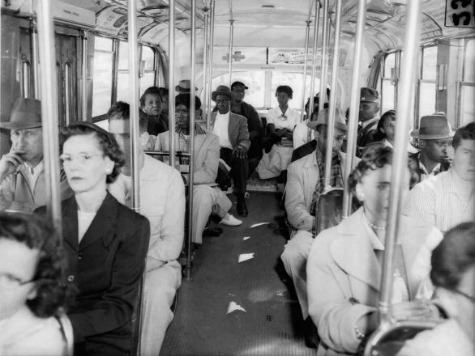After ongoing complaints of pickpocketing and aggression from gypsies, the mayor of Borgaro, Italy, has forced the local bus company to offer a dedicated route for gypsies to separate them from other passengers.
“It’s not racism; it’s just a way to solve a problem that has gone on for too long,” say members of the municipal government, run by the party of the Democrats of the Left (PD).
The new measure met with applause Friday afternoon when announced to an assembly of locals at City Hall.
Bus number 69 stops in front of one of the largest camps of gypsies (or Romani) in the city of Torino, which hosts more than 1,500 nomads. The bus has long been the center of controversy, protests, petitions, and even Facebook pages that denounce its dangers for passengers. “The gypsies attack us,” “they cut a girl’s hair,” “they spit on us,” and “no one does anything,” the accusations run.
“This will solve the problem without hurting anyone,” said Claudio Gambino, the center-left mayor. “This problem has been going on for more than 20 years.”
“Citizens suffer from theft and harassment,” says Gambino. “Monday there was an incident involving a 13-year-old girl, attacked by two gypsy girls. First they tried to take her cell phone and then scuffled with her until their arrival at the bus stop.”
“It’s the best solution for everyone,” echoed his commissioner for transportation, Luigi Spinelli, a democratic socialist (SEL).
The proposal has met with resistance, both from the political left and right.
“Marginalization is never a solution to the problems of the common welfare,” said the head of the PD, Micaela Bell. “I have heard the mayor’s arguments,” she said, “but responding to violence with segregation does not help.”
“Now the Left realizes that there is a gypsy immigration problem in Borgaro,” said the secretary of the Piedmont Northern League, Roberto Cota. Maybe Prime Minister Renzi can solve it, “since there has never been a more permissive government on the immigration question.”
A past attempt at resolution involved dispatching officers aboard the bus to escort the passengers, an experiment that lasted all of two weeks before being discontinued.
“Two lines, one for us and one for them,” insists the mayor. “I’ll talk with the commissioner, but this seems to me the only solution,” he said.

COMMENTS
Please let us know if you're having issues with commenting.